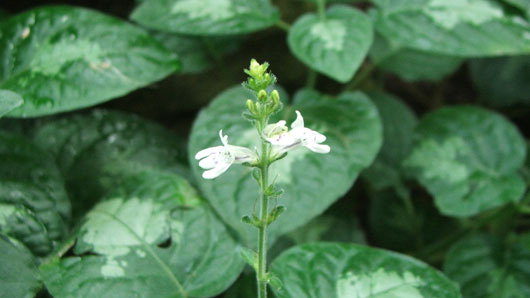Global: IUCN warns of 'extinction crisis'
13.01.10
Yesterday saw the launch of the International Year of Biodiversity in Berlin, which has the aim of celebrating all life on earth and the value of nature's riches for our lives.
But, perhaps rather strangely, IUCN's opening gambit in a press release from 8th January from was far from celebratory. In fact it was rather bleak.
IUCN's cautionary note at the beginning of this celebratory year is that of the damage human's are having on our shared environment - the environment we all rely on made up of the species, habitats, and ecosystems that prop up our life.
“We are facing an extinction crisis,” says Jane Smart, Director of the IUCN Biodiversity Conservation Group. “We need to remember that extinction is irreversible, once a species is extinct it is gone forever. The loss of this beautiful and complex natural diversity that underpins all life on the planet is a serious threat to humankind now and in the future.”
Estimates that species loss - now - is about 1,000 times the natural rate will do nothing towards achieving the ambitious biodiversity targets set for this significant year. Not much cause for celebration here then. Or in the latest Red List for that matter.
The latest update showed that 22 per cent of all known mammals, 30 per cent of all known amphibians, 12 per cent of all known birds, and 28 per cent of reptiles, 37 per cent of freshwater fish species, 70 per cent of plants, 35 per cent of invertebrates, assessed so far, are under threat.
It is critical we do something to halt this decline. The opinion at large may not be changed by dire extinction warnings, but it may be what we need to frame the arguments. After all “biodiversity is the basis of all life on earth,” says IUCN’s Head of Ecosystem Management Programme, Neville Ash. "We need practical action and supportive policies to conserve species, manage and restore ecosystems, including protected areas and the wider landscape, and promote the sustainable use of natural resources.”
IUCN is calling for ambitious but realistic biodiversity targets, which can be clearly measured and put into practice. It also wants more research on the status of biodiversity, more protected natural areas, on land and sea, and closer collaboration with the business community to find new ways of combining conservation and commerce. Greater public awareness of what’s at stake if we continue to disturb and destroy ecosystems is also considered to be a high priority.
Related links:
2010 International Year of Biodiversity
International Year of Biodiversity, UK
IN PICTURES: New species from 2009
23.12.09
 In most years - globally - approximately 2,000 new plants make themselves known to science. One of the most prolific has to be the team at Kew who collectively discovered more than 250 new species in 2009.
In most years - globally - approximately 2,000 new plants make themselves known to science. One of the most prolific has to be the team at Kew who collectively discovered more than 250 new species in 2009.
UK: Hundreds of new species round-off Kew's anniversary year
22.12.09
 It's been a remarkable year for Kew, as it celebrates its 250th year, and as we enter the International Year of Biodiversity in 2010 comes news of over 250 new species discovered by botanists from the famous London garden.
It's been a remarkable year for Kew, as it celebrates its 250th year, and as we enter the International Year of Biodiversity in 2010 comes news of over 250 new species discovered by botanists from the famous London garden.
IUCN Red List update shows up global failure to slow biodiversity loss
05.11.09
WWF respond to the Red List. The latest update of the IUCN Red List of Threatened Species should cause alarm over the continuing unprecedented loss of species and the failure so far of mechanisms to arrest biodiversity loss, WWF said today. The 2009 Red List, issued by the International Union for the Conservation of Nature, shows that more than one-third (36 per cent) of the 47,677 species assessed are threatened with extinction.
Over 12,000 plants on the Red List
03.10.09
It’s that dreaded time of year again - the time when it is spelled out so clearly how badly we are failing the planet. The latest update of the IUCN Red List of Threatened Species shows that 17,291 species out of the 47,677 assessed species are threatened with extinction. Of these a staggering 12,151 are plants - up 96 on last year - but it’s almost guaranteed they will get less publicity than their furry friends.